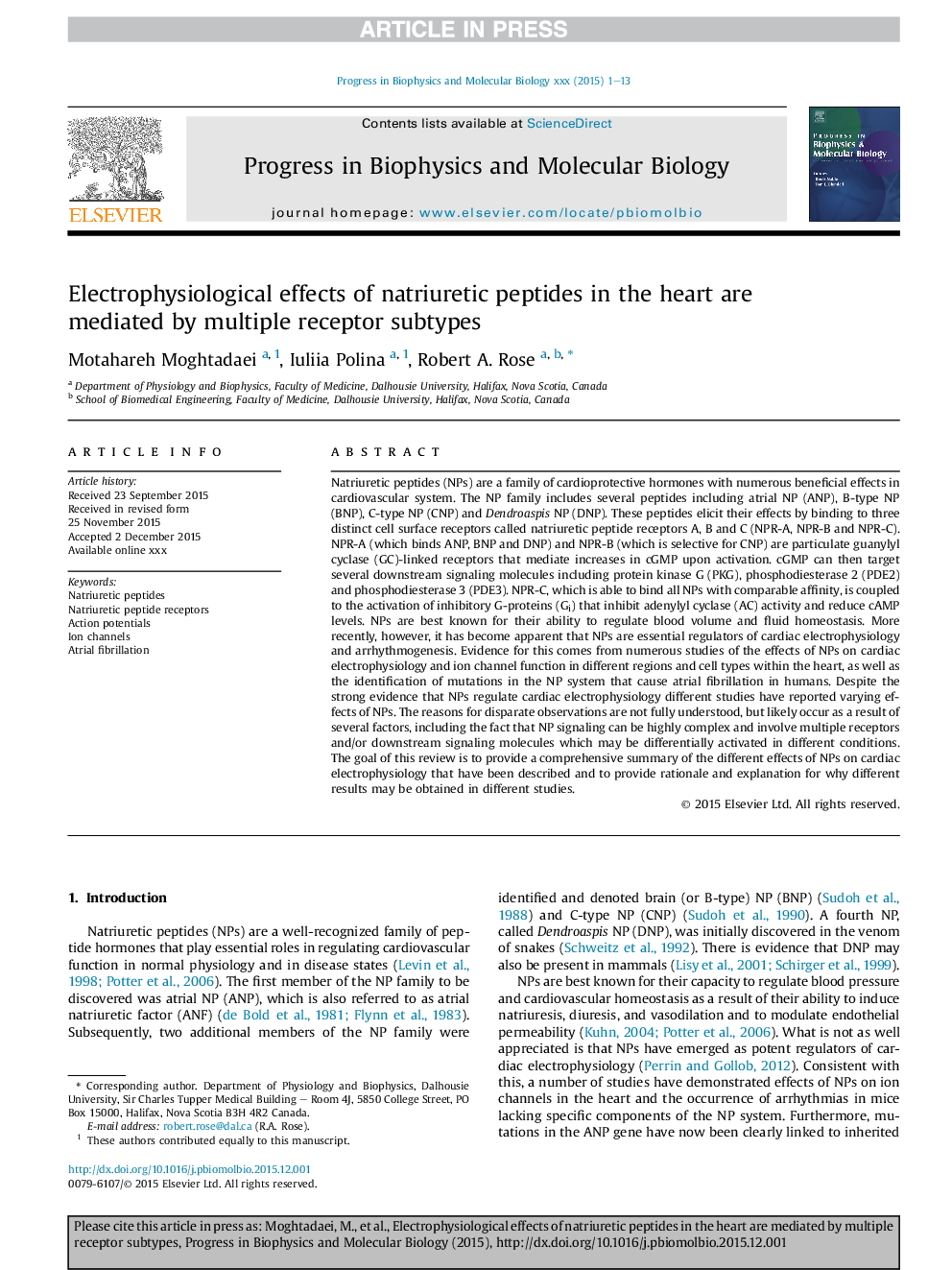| Article ID | Journal | Published Year | Pages | File Type |
|---|---|---|---|---|
| 8400833 | Progress in Biophysics and Molecular Biology | 2016 | 13 Pages |
Abstract
Natriuretic peptides (NPs) are a family of cardioprotective hormones with numerous beneficial effects in cardiovascular system. The NP family includes several peptides including atrial NP (ANP), B-type NP (BNP), C-type NP (CNP) and Dendroaspis NP (DNP). These peptides elicit their effects by binding to three distinct cell surface receptors called natriuretic peptide receptors A, B and C (NPR-A, NPR-B and NPR-C). NPR-A (which binds ANP, BNP and DNP) and NPR-B (which is selective for CNP) are particulate guanylyl cyclase (GC)-linked receptors that mediate increases in cGMP upon activation. cGMP can then target several downstream signaling molecules including protein kinase G (PKG), phosphodiesterase 2 (PDE2) and phosphodiesterase 3 (PDE3). NPR-C, which is able to bind all NPs with comparable affinity, is coupled to the activation of inhibitory G-proteins (Gi) that inhibit adenylyl cyclase (AC) activity and reduce cAMP levels. NPs are best known for their ability to regulate blood volume and fluid homeostasis. More recently, however, it has become apparent that NPs are essential regulators of cardiac electrophysiology and arrhythmogenesis. Evidence for this comes from numerous studies of the effects of NPs on cardiac electrophysiology and ion channel function in different regions and cell types within the heart, as well as the identification of mutations in the NP system that cause atrial fibrillation in humans. Despite the strong evidence that NPs regulate cardiac electrophysiology different studies have reported varying effects of NPs. The reasons for disparate observations are not fully understood, but likely occur as a result of several factors, including the fact that NP signaling can be highly complex and involve multiple receptors and/or downstream signaling molecules which may be differentially activated in different conditions. The goal of this review is to provide a comprehensive summary of the different effects of NPs on cardiac electrophysiology that have been described and to provide rationale and explanation for why different results may be obtained in different studies.
Keywords
Related Topics
Life Sciences
Biochemistry, Genetics and Molecular Biology
Biophysics
Authors
Motahareh Moghtadaei, Iuliia Polina, Robert A. Rose,
